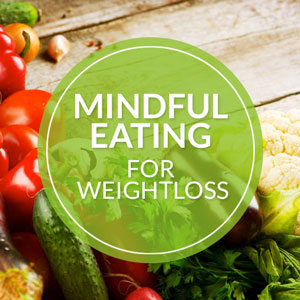Freedom vs discipline with food and exercise
Most of us consider willpower and discipline when it comes to healthy eating a must. How can you be without it? If you let yourself eat as much as you want and what you want, and not exercise you might end up as a fat lazy slob on the couch watching show reruns. Or would you? What if taking out our desire to control, to discipline ourselves, we start living a more in-tune and aligned life with our body and our internal wisdom?
Before jumping to an answer, here is piece by Krishnamurti on freedom and discipline that I love. It is not about food but it applies to food and exercise as just much. It is on a longer side but totally worth reading and pondering about. (my comments along the way are in purple and parts that are important are bolded). Full piece can be found here.
“HAVE YOU EVER considered why we are disciplined, or why we discipline ourselves? …Your parents, your teachers, the society around you – they all tell you that you must be disciplined, controlled. (Nutritionist, your trainer, yoga instructor all set boundaries for you and demand that you follow if you want results. We also discipline ourselves by putting restrictions and creating a lot of rules that we aim to follow) Why? And is there really any necessity for discipline at all? I know we are accustomed to think that discipline is necessary – the discipline imposed either by society, or by a religious teacher, or by a particular moral code, or by our own experience.
The ambitious man who wants to achieve, who wants to make a lot of money, who wants to be a great politician – his very ambition becomes the means of his own discipline. (as for health foodies who limit calories, particular foods, time when they eat) So everyone around you says that discipline is necessary: you must go to bed and get up at a certain hour, you must study, pass examinations, obey your father and mother, and so on.
Now, why should you be disciplined at all? What does discipline mean? It means adjusting yourself to something, does it not? To adjust your thinking to what other people say, to resist some forms of desire and accept others, to comply with this practice and not with that, to conform, to suppress, to follow, not only on the surface of the mind, but also deep down – all this is implied in discipline. And for centuries, age after age, we have been told by teachers, gurus, priests, politicians, kings, lawyers, by the society in which we live, that there must be discipline.
So, I am asking myself – and I hope you too are asking yourself – whether discipline is necessary at all, and whether there is not an entirely different approach to this problem? I think there is a different approach, and this is the real issue which is confronting not only the schools but the whole world. You see, it is generally accepted that, in order to be efficient, you must be disciplined, either by a moral code, a political creed, or by being trained to work like a machine in a factory; but this very process of discipline is making the mind dull through conformity. (just as much as following a particular diet, exercise routine, calorie amount defined by someone else)
Now, does discipline set you free, or does it make you conform to an ideological pattern, whether it be the utopian pattern of communism, or some kind of moral or religious pattern? (Vegan, gluten free, low fat, no sugar, paleo codes, personal restrictions) Can discipline ever set you free? Having bound you, made you a prisoner, as all forms of discipline do, can it then let you go? How can it? Or is there a different approach altogether – which is to awaken a really deep insight into the whole problem of discipline? That is, can you, the individual, have only one desire and not two or many conflicting desires? Do you understand what I mean? The moment you have two, three, or ten desires, you have the problem of discipline, have you not? You want to be rich, to have cars, houses, and at the same time you want to renounce these things because you think that to possess little or nothing is moral, ethical, religious. (You want sweets and a flat belly; bread and a healthy immune system, skip cooking but have healthy yummy cheap meals; drink at the bar and a six pack) And is it possible to be educated in the right way so that one’s whole being is integrated, without contradiction, and therefore without the need of discipline? To be integrated implies a sense of freedom, and when this integration is taking place there is surely no need for discipline. Integration means being one thing totally on all levels at the same time. (integration of body and mind, desires and actions, internal and external wisdom)
You see, if we could have right education from the very tenderest age, it would bring about a state in which there is no contradiction at all, either within or without; and then there would be no need for discipline or compulsion because you would be doing something completely, freely, with your whole being. Discipline arises only when there is a contradiction. (if you could understand the unique nature of your body, its needs, and tendencies. If you could see the food for what it is and be aware of the impact it has on your body and mind, if you knew about huge companies who are using chemicals to trick you into having stronger cravings – it would be easy to avoid relying on discipline because your knowledge would be integrated. Your desire to feel well and look well would be aligned with your action to take good care of your body no matter what)….
But all following is destructive because it is mechanical, it is mere conformity in which there is no creative release.
Now, can we bring about, from the tenderest age, a sense of complete security, a feeling of being at home (including at home in your own body), so that in you there is no struggle to be this and not to be that? Because the moment there is an inward struggle there is conflict, and to overcome that conflict there must be discipline. (It happens a lot in the food and exercise field. You crave fruits but it conflicts with expert articles you read on low sugar diets for weightloss; your body craves slow mindful movement but the industry stigma that weightloss requires high intensity workouts wins in your mind. At the end it leads you to have an internal conflict and often time acting out of alignment – binging on cake instead of fruit, and avoiding exercise.) Whereas, if you are rightly educated (both using external wisdom sources and internal wisdom that you possess), then everything that you do is an integrated action; there is no contradiction and hence no compulsive action. As long as there is no integration there must be discipline, but discipline is destructive because it does not lead to freedom.
To be integrated does not demand any form of discipline. That is, if I am doing what is good, what is intrinsically true, what is really beautiful, doing it with my whole being, then there is no contradiction in me and I am not merely conforming to something. (If you are doing what is good for your body short and long term and you using a combination of external and internal wisdom to determine the right for you action at any given time, you will stay in integrity with yourself, aligned with your desired state and your unique bio-individuality. The action that is right for your current state, current situation, current goals, and current beliefs. Action in integrity with internal wisdom and external knowledge. Action with no guilt, shame, or internal conflict).
If what I am doing is totally good, right in itself – not right according to some … tradition or … theory, but timelessly right under all circumstances – then I am an integrated human being and have no need for discipline. …
Where there is love there is no need for discipline, is there? (including self-love. When you truly love and respect yourself, you will choose what is best for you on a physical, mental, emotional level both short term and long term. Awe and respect for the intelligent creation that your body is and its innate wisdom makes it hard to consciously act against the body.) Love brings its own creative understanding, therefore there is no resistance, no conflict; but to love with such complete integration is possible only when you feel deeply secure, completely at home, especially while you are young.…
If we can understand the significance of completely integrated action in which there is no contradiction, and therefore no need for discipline, then I think we shall bring about a totally different kind of culture, a new civilization. But if we merely resist, suppress, then what is suppressed will inevitably rebound in other directions and set going various mischievous activities and destructive events. (Just as suppressing urges, cravings, and desires leads to backlashes, binges and shame)
So it is very important to understand this whole question of discipline. To me, discipline is something altogether ugly; it is not creative, it is destructive. But merely to stop there, with a statement of that kind, may seem to imply that you can do whatever you like. On the contrary, a man who loves does not do whatever he likes. (a man or a woman who love his/her body as a creation of intelligent force will respect its needs, bio-individuality, know its weak and strong points, and act with love towards it) It is love alone that leads to right action. What brings order in the world is to love and let love do what it will.
Deep, right? Reflect on this. I found the idea of completely integrated action fascinating!
In the next piece I will share a different view on discipline and freedom.
For now Adios!











